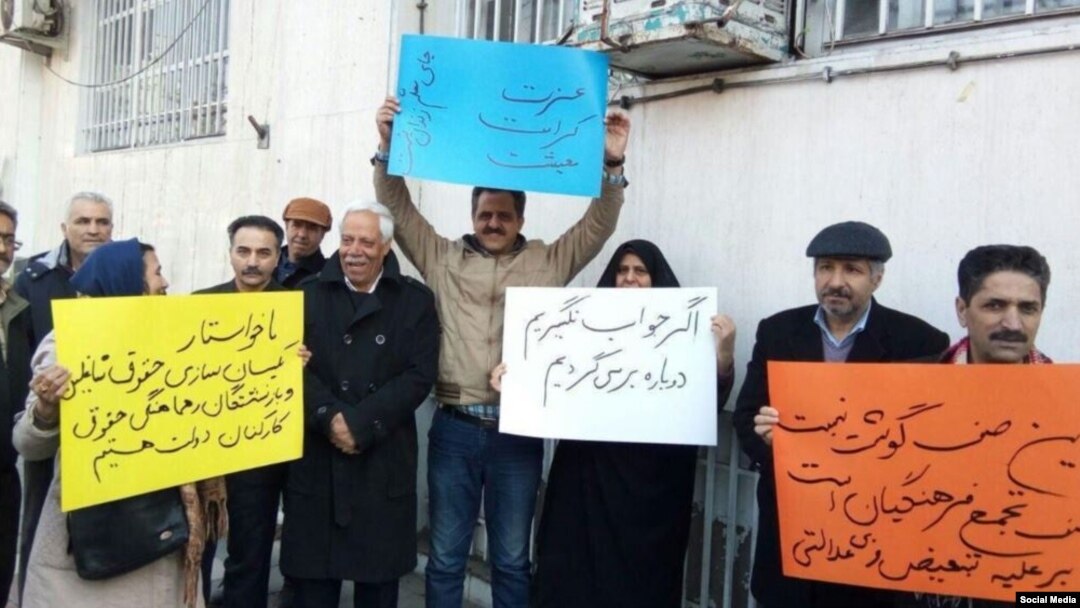Iranian teachers have staged peaceful rallies in at least six cities to protest what they see as government suppression of their rights and to call for better working conditions in their poorly paid profession.
Images verified by VOA Persian and sent from social media users inside Iran showed teachers rallying Thursday outside education departments in the northern cities of Ardabil and Urmia, the northwestern cities of Kermanshah, Marivan and Sanandaj, and in the northeastern city of Mashhad.
It was the largest-scale protest by Iranian teachers since mid-November, when the Telegram channel of the Coordinating Council of Teachers Syndicates in Iran (CCTSI) posted photos of elementary and high school teachers staging sit-ins and holding protest signs in and outside their offices in at least 27 cities. That strike action followed a similar round of nationwide teacher protests in Iran in mid-October.
Social media users in Iran told VOA Persian that the teachers involved in Wednesday’s rallies echoed the demands of past protests, such as calling for the release of teachers’ rights advocates jailed by authorities, the right to teach students in minority languages, the improvement of poorly paid teachers’ living standards, and an end to government privatization of the education system.
Kermanshah teachers’ protest, Feb. 14, 2019
One video of a teachers’ protest in Kermanshah showed dozens of men and women chanting a demand for the release of jailed Iranian education activists. Three prominent teachers’ union leaders serving multiyear sentences for alleged national security offenses at Tehran’s Evin prison include Mohammad Habibi, Mahmoud Beheshti Langroodi and Esmail Abdi.
Sanandaj teachers’ protest, Feb. 14, 2019
A video of another teachers’ protest in Sanandaj showed dozens of people gathered on a sidewalk and quietly holding signs with educational demands, such as “mother tongue education is a basic right.”
Farsi, or Persian, is Iran’s official language. Article 15 of Iran’s constitution says the country’s schoolbooks “must all be in this language and script.” It also says the use of “regional and ethnic languages … and the teaching of their literature at schools, alongside the Persian language, is freely permitted.”
But a September 2018 report by the Brussels-based Unrepresented Peoples & Nations Organization (UNPO) said Iranian authorities have refused to apply this article and punished activists who advocate for education in a child’s mother tongue.
Urmia teachers’ protest, Feb. 14, 2019
Elsewhere, a video showed a small group of demonstrators also standing outside a building and holding signs as part of a teachers’ protest in Urmia.
CCTSI, the umbrella organization for Iranian teachers’ unions, posted no images or messages about Wednesday’s rallies on its Telegram channel, whose last post was Feb. 1. There was no word on why its Telegram channel was silent, in contrast to its dozens of posts during the November protests.
Iran’s Human Rights Activist News Agency has said Iranian authorities have tightened their grip on labor unions in recent years and shown a “particular vitriol” toward those representing educators. In November, CCTSI said its strike actions were legal and not associated with any domestic or foreign political faction.
This article originated in VOA’s Persian Service.


